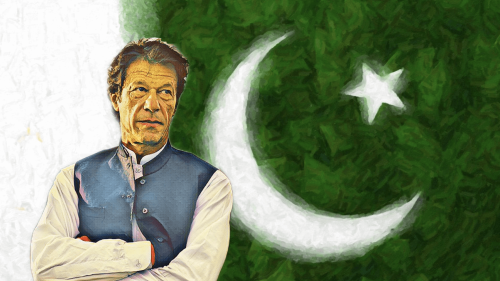Pakistan India provide an example for the Middle East on dialogue
Palestine is often cited as the Middle East's central, intractable conflict, but as the scope of the "Middle East" widens to the east, we are forced to confront another, 60-year old stalemate, between Pakistan and India. One item of good news that has emerged from the Summit of Non-Aligned Countries taking place in Sharm el-Sheikh, Egypt this week is the announcement that the principals - Pakistan and India - are committed to discussing all of the issues on the table.
In their joint statement, Prime Ministers Yusuf Raza Gilani of Pakistan, and Manmohan Singh of India, added an important proviso: action on fighting terrorism would not be added to the mix. While the two leaders affirmed their determination to fight terror, they explicitly dismissed the idea of linking anti-terrorism achievements to conducting dialogue.
The news is welcome, especially after last year's horrific attacks in Mumbai, which claimed more than 150 victims, threatened to derail any chance of cordial relations between the long-time rivals.
While combating terror and violence is certainly important, neighbors that are ready to engage in dialogue about solving divisive bilateral issues would be assumed to have good intentions. Thus, we can assume that two neighbors would seek to combat terror to begin with. Linking achievements on this front to dialogue, in the form of "clean up your act before we'll be ready to talk to you," are often counter-productive.
Past decades have proven to all that there is no viable military solution to an issue like Kashmir. The lack of political progress on this score has meant that the usually volatile relationship between Pakistan and India has, in recent years, seen the rise of non-state actors: to the point where such non-state actors set the agenda. After the Mumbai attacks, things only became worse, but India and Pakistan have seemingly come around to the idea that the only way to produce viable solutions is through opening channels of dialogue between them. In other words, talking is important, and shouldn't be belittled as a waste of time. Kashmir is obviously not going to be solved in the same old fashion, by massing troops and conducting shows of strength, or worse: testing nuclear weapons, or seeing terrorist groups murder civilians.
The movement of the Non-Aligned has certainly seen better days. But when its leaders meet, and can declare forthrightly that they are committed to dialogue and generating workable solutions, without setting down ultimatums on "terror," it's a good sign. These are the kinds of approaches we need in our wider Middle East, whether it's Afghanistan, or Iran, or Iraq. Such declarations are an important signal to the world that serious steps toward stability can be taken in a tense, volatile area.
Source: The Daily Star
Topics: Conflicts And War, Foreign Policy, Middle East, Pakistan
Views: 4377
Related Suggestions

















